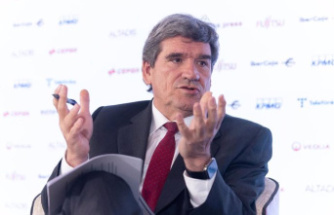MADRID, 18 Abr. (EUROPA PRESS) -
The general director of capital markets of the Association of Financial Markets of Europe (AFME), Rick Watson, has focused this Thursday on the importance of advancing the union of European capital markets to increase competitiveness compared to other geographies in a context marked by geopolitical and economic uncertainty.
Within the framework of the Annual Conference on Capital Markets in Spain, Watson has stated that we are in "a decisive moment" for the markets, both in Spain and in Europe.
In that sense, he has cited conflicts such as those in Ukraine and the East, together with the growing budgetary demands in terms of defense and sustainability that put pressure on public accounts, to point to the need to explore new financing avenues.
In line with this, Watson has stated that capital markets can become "an essential part of the solution" to these new financing needs, which is why he highlighted "the need to continue advancing in the integration of capital markets of the European Union".
"A union that would enhance liquidity, boost corporate valuations of European companies and, ultimately, increase the attractiveness of European capital markets," he argued to support that line of argument.
Likewise, AFME has expressed its satisfaction at the fact that, at the end of March, the heads of government of the European Union approved a joint declaration calling for the integration of European capital markets.
AFME has stressed that the fragmentation of European capital markets represents a "burden for competitiveness" and can motivate the departure of certain corporations towards other deeper and more liquid markets, such as the United States.
Associated with this, they have cited their own report by which the international competitiveness of the EU capital markets decreased last year and remains far from the United States, as well as the United Kingdom, in matters such as access to financing, market liquidity and digital financing capacity.













